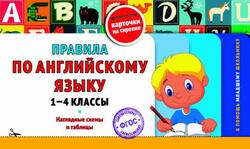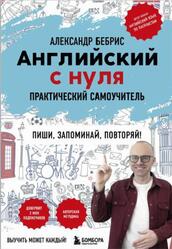The first book in the history and philosophy of science that I can remember reading as an undergraduate thirty years ago was Alan Chalmers’s What is This Thing Called Science? The copy is still on my shelves somewhere. The title has stuck with me for a number of reasons. The question it asks appeals because the answers turn out to be so unexpectedly elusive and slippery. At first sight it appears obvious what science is— it’s what scientists do. Very few people now would deny the critical role that science plays in underpinning contemporary life. Science, and the technological offshoots of science, are everywhere around us. Modern science does not just provide us with technological fixes, though. Its ideas and assumptions are embedded in a very fundamental way in the ways we make sense of the world around us. We turn to science to explain the material universe, and to account for our spiritual lives. We routinely use science to talk about the ways we talk to each other. But what do we really mean by science? It’s a uniquely human activity, after all. At its broadest level, science stuns up the ways we make sense of the world around us. It’s the set of ways we interact with the world—to understand it and to change it. It is this humanity at the heart of science that makes understanding its history and its culture so important.

Greek Natural Philosophy.
In the sixth century все, something new begem in a portion of the Greek world—the thin line of settlements along the western coast of Asia Minor. Traditionally, Thales of Miletus (c.580 все) was said to have invented philosophy, along with geometry and astronomy. Of course, this only reflects the fondness of later Greek writers for attributing every discovery to one particular wise man. Nevertheless, an important philosophical tradition began with him and his successors, Anaximander and Anaximenes, at Miletus. By the fifth century, Athens became the most important place for doing philosophy, as well as for teaching and learning about it.
A key feature of the philosophical movement was the desire to remove the gods from the middle of things—to change the rules of explanation. Xenophanes of Colophon complained that the old poets (Homer and Hesiod) had ascribed to the gods shameful things, such as lying, stealing, and committing adultery, and he ridiculed his contemporaries for believing that gods have bodies and wear clothes like their own. He famously remarks that the gods of the Ethiopians have flat noses and dark skins, while the gods of the Thracians have red hair and blue eyes. And if cattle and horses had hands and could draw, horses would picture gods that look like horses, and cattle like cattle.
CONTENTS.
INTRODUCTION.
Iwan Rhys Morus.
PART I. SEEKING ORIGINS.
1. SCIENCE IN THE ANCIENT MEDITERRANEAN WORLD.
Janies Evans.
2. SCIENCE IN ANCIENT CHINA.
Donald Harper.
3. SCIENCE IN THE MEDIEVAL CHRISTIAN AND ISLAMIC WORLDS.
Steven J. Livesey and Sonja Brentjes.
4. SCIENCE IN THE PRE-MODERN EAST.
Dagmar Schaefer.
5. THE SCIENTIFIC REVOLUTION.
John Henry.
6. ENLIGHTENMENT SCIENCE.
Jan Golinski.
PART II. DOING SCIENCE.
7. EXPERIMENTAL CULTURES.
Iwan Rhys Morns.
8. EXPLORING NATURE.
Amanda Rees.
9. THE MEANING OF LIFE.
Peter Bowler.
10. MAPPING THE UNIVERSE Robert Smith.
11. THEORETICAL VISIONS Matthew Stanley.
12. COMMUNICATING SCIENCE Charlotte Sleigh.
Further Reading.
Picture Acknowledgements.
Index.
Бесплатно скачать электронную книгу в удобном формате, смотреть и читать:
Скачать книгу The Oxford Illustrated History of Science, Iwan Rhys Morus, 2017 - fileskachat.com, быстрое и бесплатное скачивание.
Скачать pdf
Ниже можно купить эту книгу, если она есть в продаже, и похожие книги по лучшей цене со скидкой с доставкой по всей России.Купить книги
Скачать - pdf - Яндекс.Диск.
Дата публикации:
Теги: учебник по английскому языку :: английский язык :: Iwan Rhys Morus
Смотрите также учебники, книги и учебные материалы:
Следующие учебники и книги:
 Английская грамматика для школьников, книга 4, Смирнова А.И., 1997 — Это четвертая книга в комплекте Английская грамматика , включающем все разделы грамматики в объеме школьной программы. Первые две книги вышли … Книги по английскому языку
Английская грамматика для школьников, книга 4, Смирнова А.И., 1997 — Это четвертая книга в комплекте Английская грамматика , включающем все разделы грамматики в объеме школьной программы. Первые две книги вышли … Книги по английскому языку Interactive, Teacher’s Book 4, Holcomb G., Hadkins H., Lewis S., Budden J. — Welcome to Interactive, a course designed to maximise your students’ communication in real, effective English. Interactive by name. Interactive by … Книги по английскому языку
Interactive, Teacher’s Book 4, Holcomb G., Hadkins H., Lewis S., Budden J. — Welcome to Interactive, a course designed to maximise your students’ communication in real, effective English. Interactive by name. Interactive by … Книги по английскому языку World, quest 2, Workbook, Raynham A. — MORE FUN for students with the best-ever stories, songs and activities for learning English. MORE SUPPORT for teachers with ready-to-use … Книги по английскому языку
World, quest 2, Workbook, Raynham A. — MORE FUN for students with the best-ever stories, songs and activities for learning English. MORE SUPPORT for teachers with ready-to-use … Книги по английскому языку U.S. History, Ventura College, Volker Janssen, 2017 — Welcome to U.S. History, an OpenStax resource. This textbook was written to increase student access to high-quality learning materials, maintaining … Книги по английскому языку
U.S. History, Ventura College, Volker Janssen, 2017 — Welcome to U.S. History, an OpenStax resource. This textbook was written to increase student access to high-quality learning materials, maintaining … Книги по английскому языку
Предыдущие статьи:
 World quest 2, Student’s book, Pye D., Shipton P. — World quest 2, Student s book, Pye D., Shipton P. Фрагмент из книги: Thanksgiving Day is celebrated every year in … Книги по английскому языку
World quest 2, Student’s book, Pye D., Shipton P. — World quest 2, Student s book, Pye D., Shipton P. Фрагмент из книги: Thanksgiving Day is celebrated every year in … Книги по английскому языку Учебник технического перевода, английский язык, Смекаев В.П., 2006 — Учебник технического перевода предлагается для использования на практических занятиях по переводу и для самостоятельной работы студентов. Цель учебника дать студентам … Книги по английскому языку
Учебник технического перевода, английский язык, Смекаев В.П., 2006 — Учебник технического перевода предлагается для использования на практических занятиях по переводу и для самостоятельной работы студентов. Цель учебника дать студентам … Книги по английскому языку Cambridge English, Key for Schools 2, With answers, 2012 — Фрагмент из книги: Children’s Voice began in 2000 as a magazine written by children. It was the idea of a … Книги по английскому языку
Cambridge English, Key for Schools 2, With answers, 2012 — Фрагмент из книги: Children’s Voice began in 2000 as a magazine written by children. It was the idea of a … Книги по английскому языку Prepare, Teachers Book, Level 7, Rogers L., 2015 — The English Vocabulary Profile (EVP) is an online resource providing detailed information about the words, phrases, phrasal verbs and idioms … Книги по английскому языку
Prepare, Teachers Book, Level 7, Rogers L., 2015 — The English Vocabulary Profile (EVP) is an online resource providing detailed information about the words, phrases, phrasal verbs and idioms … Книги по английскому языку




